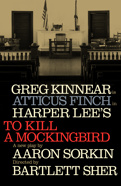To Kill a Mockingbird’s Gbenga Akinnagbe on Surviving His ‘Dark’ Childhood, Dreaming of Becoming an Olympian & More

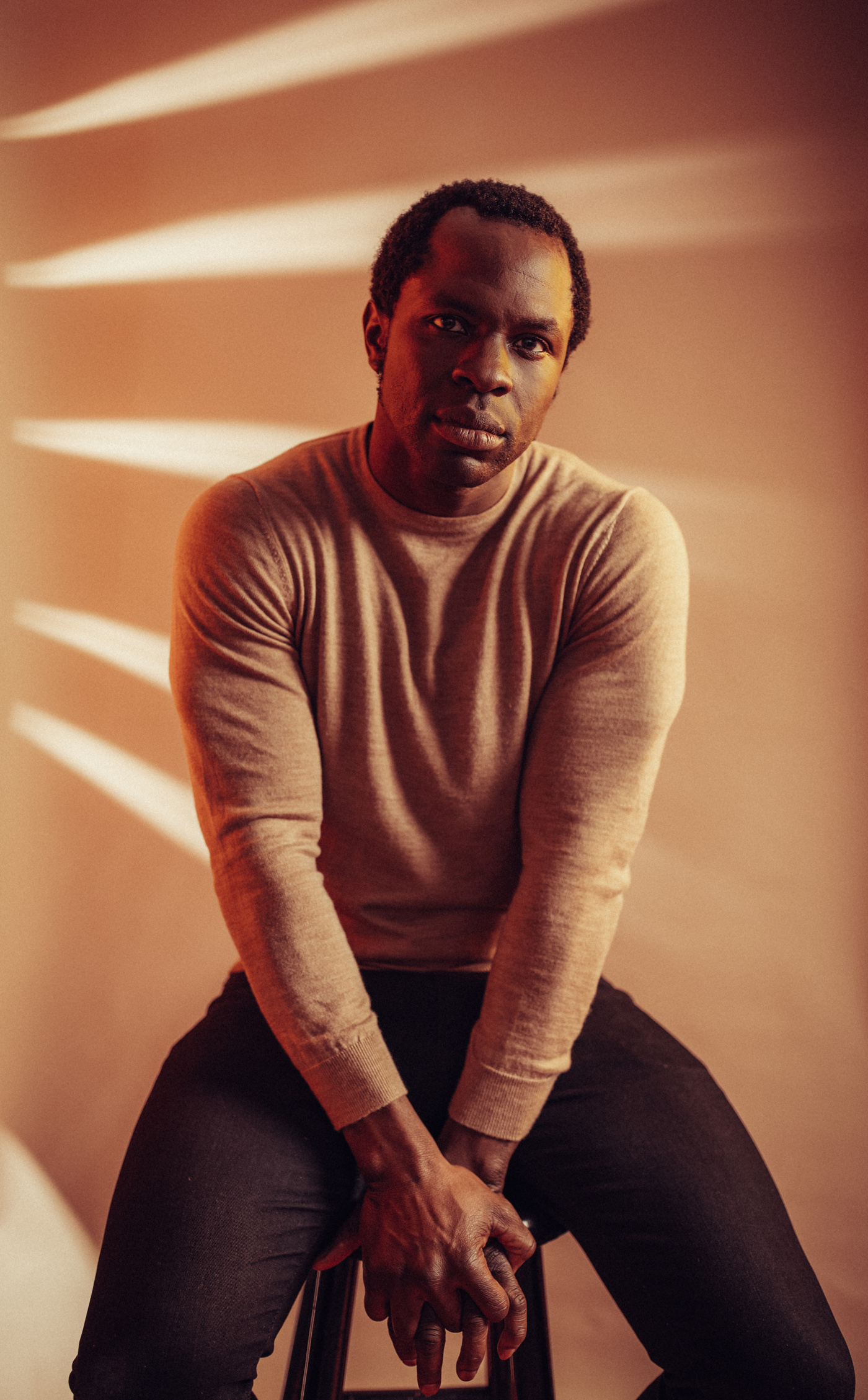
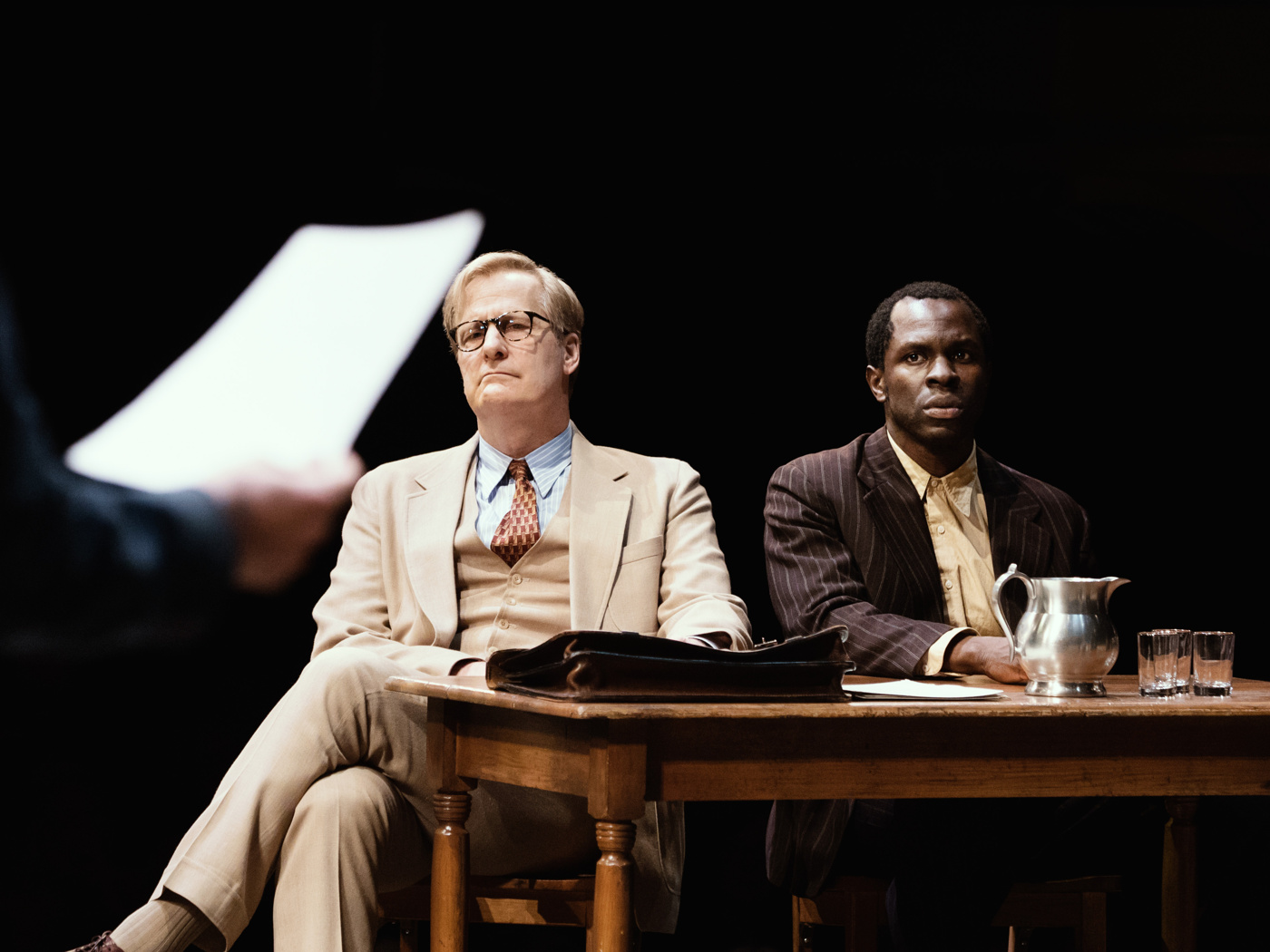
Though he’s best known for his role as the coldblooded assassin Chris Partlow in HBO’s seminal series The Wire, Gbenga Akinnagbe is someone who radiates compassion and calmness. And that natural aura of composure is serving him well in his Broadway debut as Tom Robinson, a black man falsely accused of raping a white woman, in Aaron Sorkin’s much-admired adaptation of Harper Lee’s To Kill a Mockingbird. The role requires Akinnagbe to be center stage while the various white residents of 1934 Maycomb, Alabama, accuse him, defend him, question him, attack him and, finally, condemn him. Akinnagbe took a break from his duties at the Shubert Theatre to chat with Broadway.com about taking on Lee’s timeless classic, creating an iconic TV character and building the world he wishes to see.
What’s in a Name
Born in Washington, D.C. to Nigerian parents, Akinnagbe was the first in his family to be born in the U.S., but it was Nigerian tradition that would set the course for Akinnagbe's soaring life. “My whole name is Olugbenga Enitan Temitope Akinnagbe, and in Nigeria everyone's name has a meaning and there's a story as to how these names came to be,” he says. “For my mother it was a difficult pregnancy because she had lived in many places. And when she left the hospital, she was homeless. She didn't have a place to stay with me. So, the name came about, ‘To lift this child up to God.’” But when Akinnagbe began looking for a job, his mother suggested he change his name to something more “acceptable.” “I was like, ‘Hell no, no, no. I'm not changing my name.’ Some people thought, ‘OK, well, your name is G'Benga, but what's your stage name?’ I'm like, ‘G'Benga. I go by G'Benga.’ I remember once being on the train, it was post-The Wire, and I'm sitting on the train, and I hear somebody say, ‘Excuse me, Mr. Akinnagbe?’ And I turn, and it's a white man, and he's calling me by my last name! I'm like, ‘I'm gonna tell my mother this story.’ He learned my name and he called me by my name.”
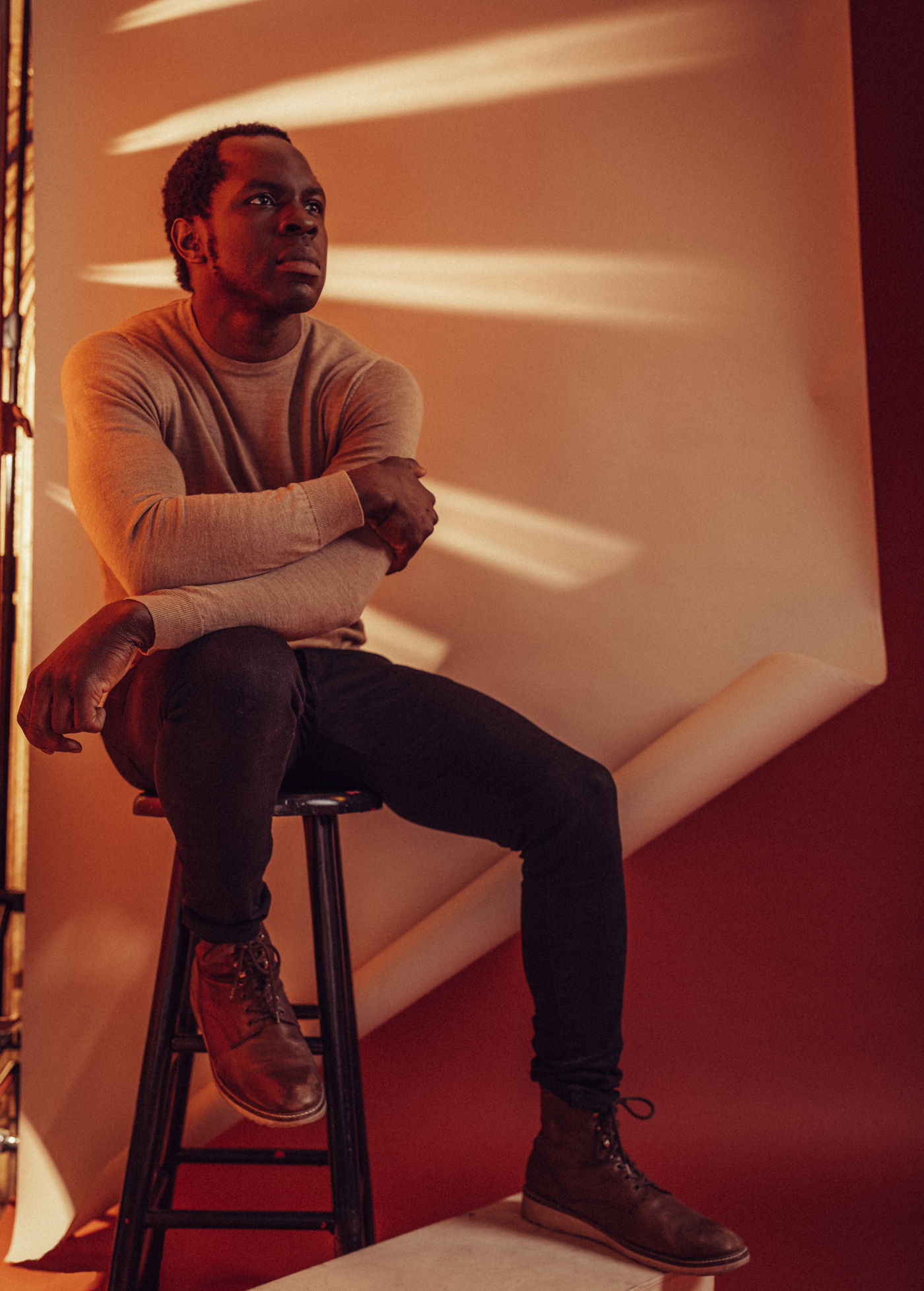
Electronic Nanny
Akinnagbe spent much of his youth either frequently transferring to various schools in Maryland’s Montgomery County or fixing himself in front of the television set at home. “I mean, I've grown up on TV, watching TV, TV was my babysitter. I do not recommend it,” he says. “It was very dark. A very dark childhood. It was basically TV or in and out of different schools. And so, I didn't really have influences that were outside of the TV box, but in that world, there was a wide array of people. So, I would just kind of lose myself in TV.” Akinnagbe’s connection to those other worlds and that feeling of escape that sitcoms like Small Wonder, ALF and Growing Pains gave him, would later bolster his interest in becoming an actor.
Ready to Rumble
Taking up wrestling in high school was Akinnagbe’s first big break. He swiftly became a champion in the sport, which would help secure him a scholarship to Bucknell University, where he majored in English and political science. “When I graduated, I wanted to continue to train to get a position on one of the teams that sponsors Olympians and international wrestlers at The Dave Schultz Club or Sunkist Kids,” he says. “The UFC just started right when I graduated. One of the wrestlers from my team started training towards that direction. So, I considered it. To me, my dream scenario would be to write and wrestle. I love what it did for my life. I love what it teaches me. It's constantly teaching me about my body, my mind and my spirit. And in many ways, writing does the same thing.”
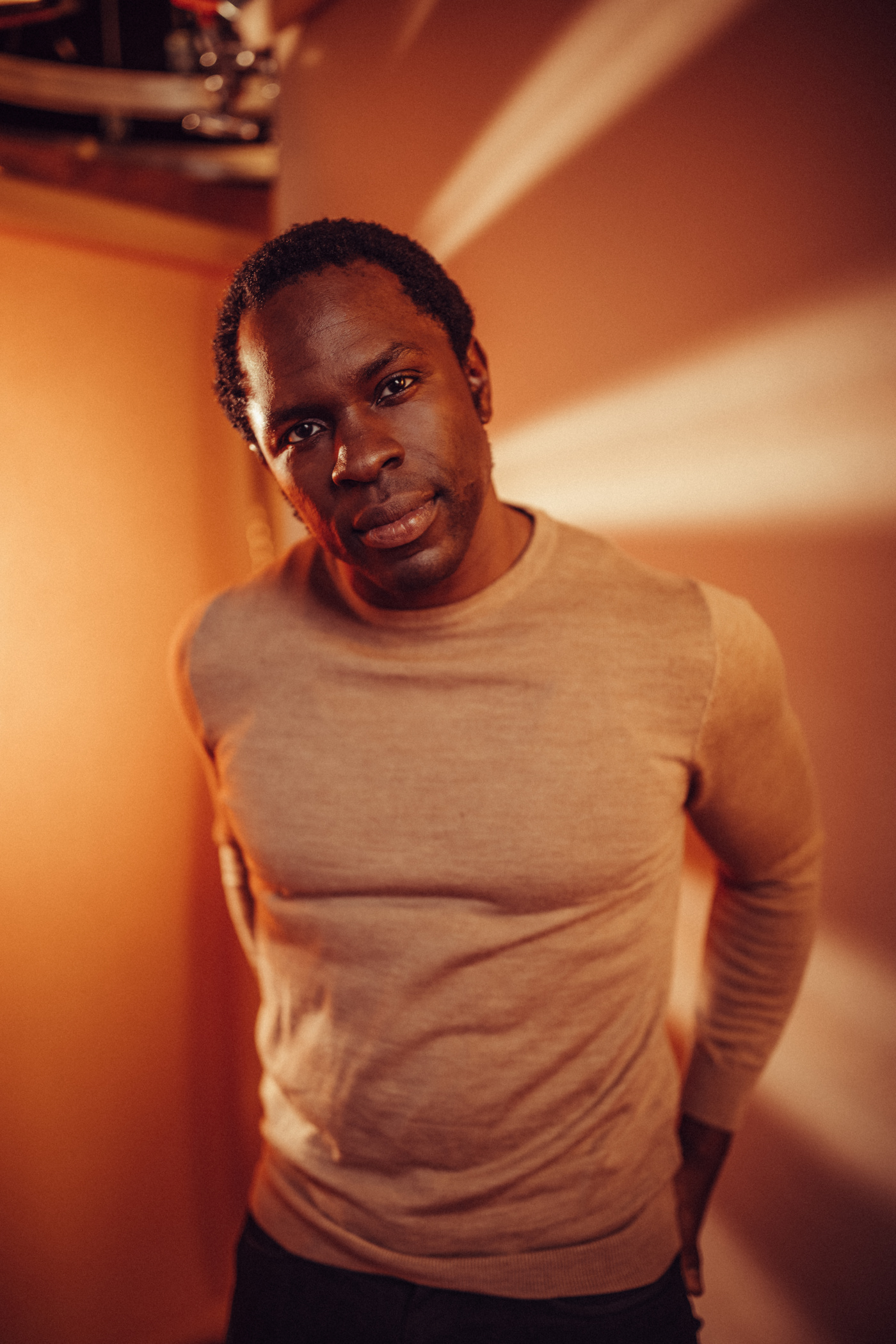
Let's Google It
After graduating college, Akinnagbe took a federal job, working for the Corporation for National and Community Service in Washington, D.C., but a continuing interest what it took to make it as a performer eventually got the better of him. “When, later in life, I realized that it was something that people did as a living, I was really curious about it. I just got curious about the whole world,” he says. “I started doing some research, going into chat rooms and talking to people. Sounds real creepy now, wasn't as creepy then. But I learned a lot about what acting is and then I started going on auditions in the area just to see what they were like. And then I was offered a role at the Shakespeare Theatre in D.C. And I said, ‘OK, let me try this out.’”
Making a Killing
In the early aughts, while taking acting classes, Akinnagbe was called to audition for a role on David Simon’s The Wire—an opportunity that would change his life. Akinnagbe’s praised performance as the hitman Chris Partlow on the HBO series was the announcement of a major new talent, but he remembers being terrified. “When I started doing The Wire, I was so scared. I was like, ‘They're gonna find out that they messed up and they're gonna kick me off this set,’” he says. “Part of my fear was that I actually started out as a background extra on The Wire. And so, I'm like, ‘This doesn't make sense. I now have lines and I'm recurring, and now I'm one of the leads.’ I was paranoid that they would find out their mistake and get rid of me, but that obviously wasn't the case and they made me feel very much at home.” After The Wire ended in 2008, Akinnagbe showed up on other popular TV shows, including The Good Wife and Nurse Jackie, as well as his current gig on Simon’s The Deuce.
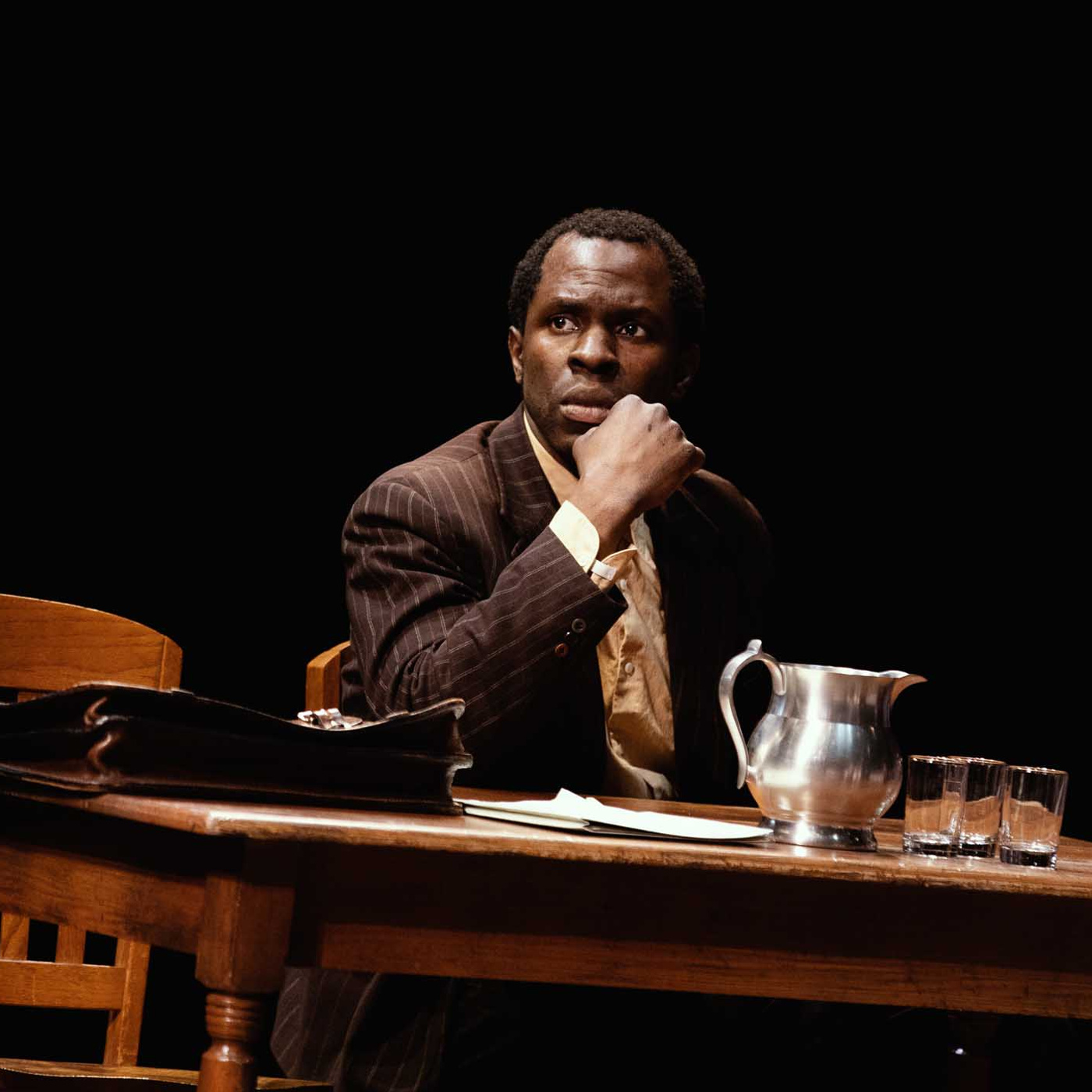
Broadway Bona Fides
Television helped him navigate his tough childhood and make a name for himself, but Akinnagbe was eager to return to his theater roots. And the opportunity to make his Broadway debut in a production based on one of the greatest novels of all time, adapted by Aaron Sorkin, directed by Bartlett Sher and produced by Scott Rudin has been remarkable. “Honestly, this experience has been like a dream because I didn't have the pressure of coming into a room and auditioning for this role. I was just asked to be a part of this workshop,” he says. “Plus, Bart and Aaron and Scott were so receptive to our thoughts and comments because they really wanted to make this the best that they could. I was satisfied at the end of the initial two-day workshop. Like, this was amazing. And then when Scott reached out and asked if I would do it, I wrote like, ‘First, holy shit. Second, hell yeah.’ I didn't check my schedule, I said, ‘Yes! I'll do it. Yes.’”
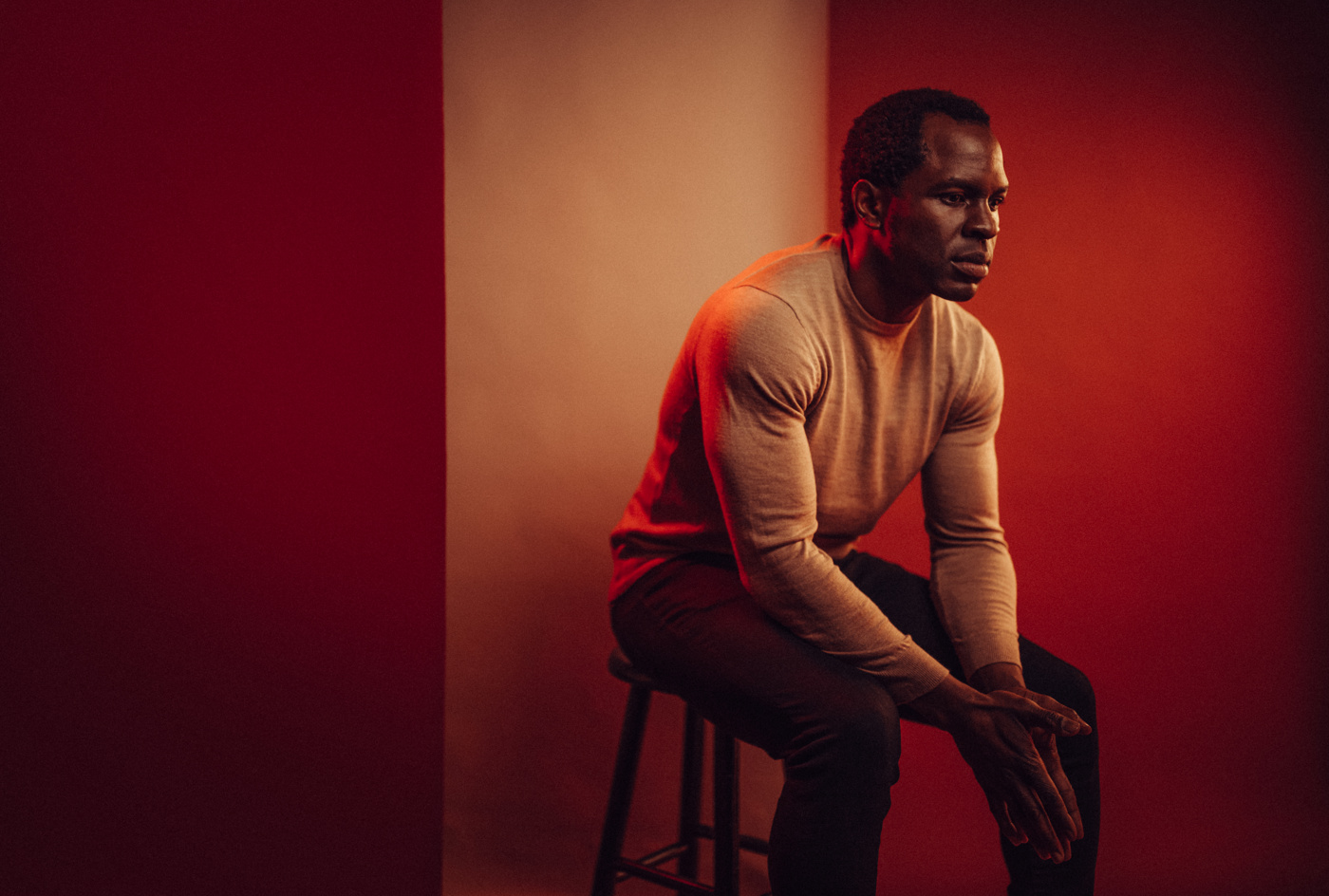
Leaving a Legacy
Of course, Akinnagbe doesn’t see himself as just an actor. He proudly views himself as a member of the community—in a greater sense—and he’s eager to contribute to that community in myriad ways. He’s written for The New York Times, given a TEDx Talk on Stop and Frisk and launched the lifestyle brand Liberated People, which works with nonprofits around the world and whose items, including a hoodie emblazoned with the name “TRAYVON,” are sold alongside the Mockingbird merchandise at the Shubert Theatre. “I use everything I do to try to speak to some sort of social good because that's my guiding principle,” he says. “I just want to change things because I can, you know? I hope people would say that I left an evolving legacy behind, something that continues to give and change the world and people for the better. I hope people will see that this is something I've dedicated my life to. I hope it inspires them to do something—not even something similar—just to take action in their own life.”
This interview has been edited for brevity and clarity.
Photos by Caitlin McNaney | Makeup by Rachel Estabrook | Video directed and edited by Kyle Gaskell
